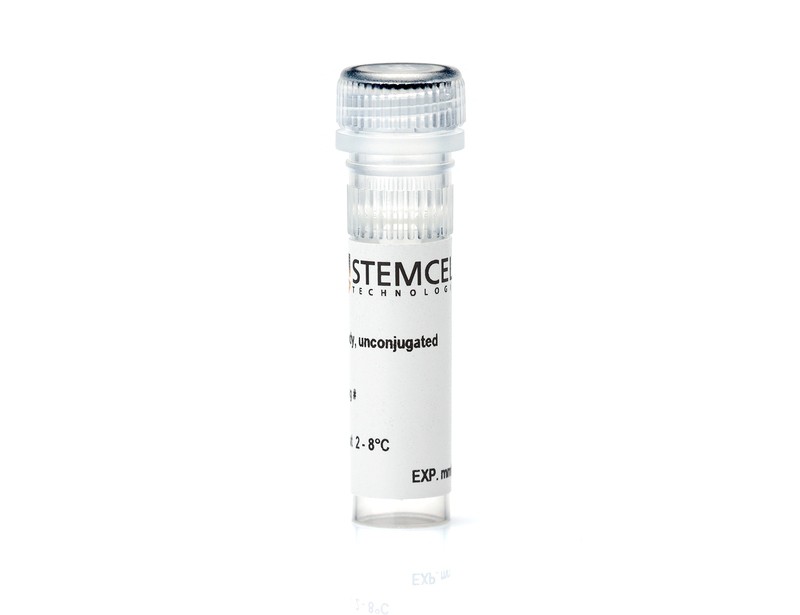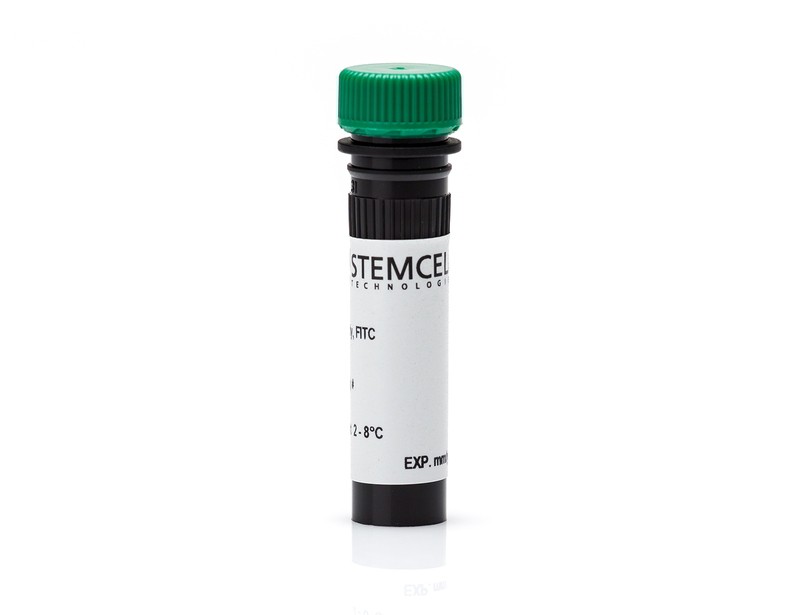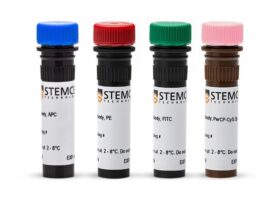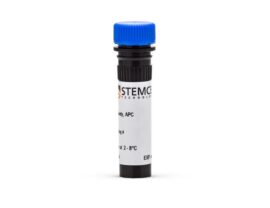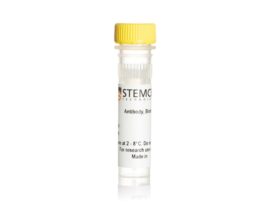Overview
The IV.3 antibody reacts with human CD32 (FcγRII), an ~40 kDa type 1 transmembrane glycoprotein that mediates several functions including phagocytosis, cytotoxicity, immunomodulation and platelet aggregation. CD32 is encoded by three genes (A, B, C) and at least 6 isoforms are generated via alternative mRNA splicing, i.e., IIa1, IIa2, IIb1, IIb2, IIb3 and IIc. All isoforms are expressed by monocytes/macrophages, placental trophoblasts and endothelial cells. In addition, the IIb isoform is expressed by B cells, and the IIa isoform by platelets, granulocytes and, weakly, by B cells. Isoform IIc is expressed by NK cells and neutrophils. CD32 binds weakly to the Fc region of monomeric IgG but more strongly to IgG aggregates and immune complexes. These interactions can result in non-specific labeling in antibody-based detection and cell separation experiments and the IV.3 antibody may be employed as a blocking antibody to reduce non-specific binding. The IV.3 antibody binds most strongly to the IIa isoforms of CD32, with the epitope mapped to amino acids 132 – 137 [FSHLDP] in domain 2, within the ligand binding site. Binding of the IV.3 antibody can be blocked by clone FLI8.26 in flow cytometry analyses, suggesting that these clones may share a common or overlapping epitope.
This antibody clone has been verified for purity assessments of cells isolated with EasySep™ kits, including EasySep™ Human T Cell Enrichment Kit (Catalog #19051) and EasySep™ Human CD4+ T Cell Enrichment Kit.
Subtype: Primary Antibodies
Target Antigen: CD32
Alternative Names: FCR II, FcγRII
Reactive Species: Human
Conjugation: FITC; Unconjugated
Host Species: Mouse
Cell Type: B Cells; Granulocytes and Subsets; Monocytes
Application: Cell Isolation; Flow Cytometry; Functional Assay; Immunocytochemistry; Immunohistochemistry; Neutralization and Blocking; Western Blotting
Area of Interest: Immunology
Clone: IV.3
Gene ID: 2212
Isotype: IgG2b, kappa





